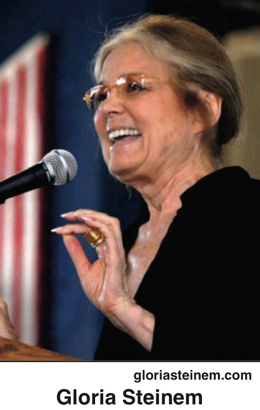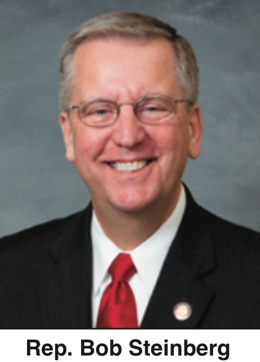Rascals case in brief
In the beginning, in 1989, more than 90 children at the Little Rascals Day Care Center in Edenton, North Carolina, accused a total of 20 adults with 429 instances of sexual abuse over a three-year period. It may have all begun with one parent’s complaint about punishment given her child.
Among the alleged perpetrators: the sheriff and mayor. But prosecutors would charge only Robin Byrum, Darlene Harris, Elizabeth “Betsy” Kelly, Robert “Bob” Kelly, Willard Scott Privott, Shelley Stone and Dawn Wilson – the Edenton 7.
Along with sodomy and beatings, allegations included a baby killed with a handgun, a child being hung upside down from a tree and being set on fire and countless other fantastic incidents involving spaceships, hot air balloons, pirate ships and trained sharks.
By the time prosecutors dropped the last charges in 1997, Little Rascals had become North Carolina’s longest and most costly criminal trial. Prosecutors kept defendants jailed in hopes at least one would turn against their supposed co-conspirators. Remarkably, none did. Another shameful record: Five defendants had to wait longer to face their accusers in court than anyone else in North Carolina history.
Between 1991 and 1997, Ofra Bikel produced three extraordinary episodes on the Little Rascals case for the PBS series “Frontline.” Although “Innocence Lost” did not deter prosecutors, it exposed their tactics and fostered nationwide skepticism and dismay.
With each passing year, the absurdity of the Little Rascals charges has become more obvious. But no admission of error has ever come from prosecutors, police, interviewers or parents. This site is devoted to the issues raised by this case.
On Facebook
Click for earlier Facebook posts archived on this site
Click to go to
Today’s random selection from the Little Rascals Day Care archives….
Click for earlier Facebook posts archived on this site
Click to go to
Today’s random selection from the Little Rascals Day Care archives….
What jurors learned from ‘Every Mother’s Worst Fear’
April 2, 2012
Among the contaminants reported in the deliberations of the first Little Rascals jury was a Redbook article used to profile Bob Kelly as a child molester. Its content never was detailed, so I looked it up (thanks yet again, Charlotte Mecklenburg Library).
Beneath the panic-inducing headline – “Why I’m Every Mother’s Worst Fear” – I was surprised to find virtually nothing relevant to day cares. Instead, the author offered insights such as:
“There are far more child molesters who operate like me than there are those who forcibly kidnap children. What the abductors do makes the headlines. What I do is more common and less noticeable. Most child molesters are established in our communities, known to others as just another good neighbor. We may even be married with kids of our own.”
An editor’s note drove home the point: “Finally, believe a child who reports a sexual overture or encounter, no matter how respectable or unlikely the accused person might seem.”
These descriptions, of course, fit the crazy-making template for ritual-abuse prosecutions:
If he seems like a child abuser, then he is.
If he doesn’t seem like a child abuser, then he is – “no matter how unlikely.”
Psychiatry, the devil and Gloria Steinem
 March 24, 2014
March 24, 2014
As described in Richard Noll’s “When Psychiatry Battled the Devil,” the 7th annual conference of the International Society for the Study of Multiple Personality and Dissociation, held in Chicago in November 1990, proved to be a turning point in mainline psychiatry’s attitude toward “satanic ritual abuse” and the multiple personalities it supposedly spawned.
It was also notable for the involvement of perhaps the country’s most celebrated believer in SRA.
“A large hotel ballroom (was) filled with most of the more than 700 conference attendees,” Noll recalled. “Television crews were on hand…. So was Gloria Steinem….
“(Anthropologist Sherrill) Mulhern and I were strident in our outright rejection of the veracity of SRA claims….
“Steinem approached me after my talk and suggested materials to read which she felt would help me change my opinion of SRA accounts….”
Not only had Steinem been using Ms. magazine to promote claims of ritual abuse, MPD and repressed memory, but also – just months before the Chicago conference – she had underwritten an archeological search for the imaginary “McMartin tunnels.”
I asked Noll what else he remembered about their encounter.
“She came up to me while I was still sitting up on stage and hundreds of people were still milling around. I didn’t recognize her at first until I stared down at her name tag, then she rolled her eyes and made a face that indicated, ‘Yeah, it’s me . . . .’
“She wrote down a couple of titles that I frankly do not remember….You know, for years I saved that piece of paper she wrote on.”
As far as I can tell, Steinem has never removed her name from the very long list of unapologetic SRA believers. But who knows – maybe it’s a position she will want to reexamine as an octogenarian.
By time to testify, children knew their lines
Jan. 30, 2013
“They have been through more dress rehearsals than the cast of ‘Cats.’”
– Joe Cheshire, lawyer for Betsy Kelly, protesting the latitude given the prosecution in preparing Little Rascals children to testify (New York Times, Aug. 19, 1991)
‘Ritual abuse’ prosecution as stepping stone?
 Dec. 15, 2013
Dec. 15, 2013
“….Rumor has it that people are urging former District Attorney Nancy Lamb to run against Republican (State) Rep. Bob Steinberg in Northeastern North Carolina….
“In Steinberg’s district, Democrats hold a 14% advantage over Republicans and unaffiliated voters hold a 4 point margin over the GOP.”
– From “Here Come the Women” by Thomas Mills at PoliticsNC (Dec. 5)
If the idea of a spectacularly misguided “ritual abuse” prosecutor pursuing a further political career seems unlikely, consider that two of the worst actors in the Fells Acres (Gerald Amirault) case – Scott Harshbarger and Martha Coakley – both went on to election as Massachusetts attorney general.
And Janet Reno, prosecutor of the Country Walk (Frank Fuster) case became U.S. attorney general.











0 CommentsComment on Facebook